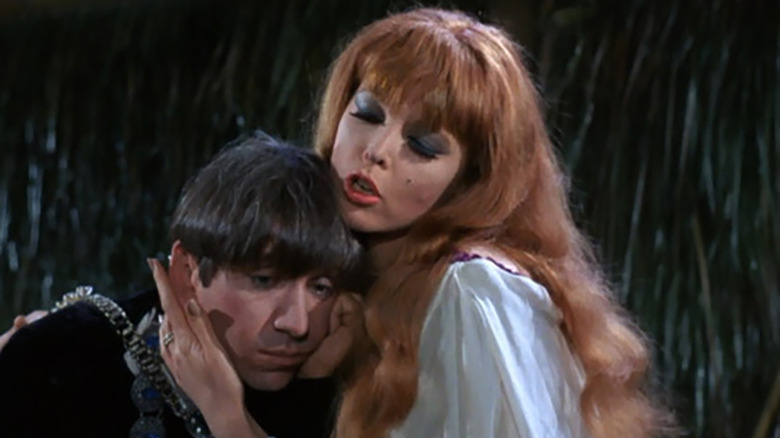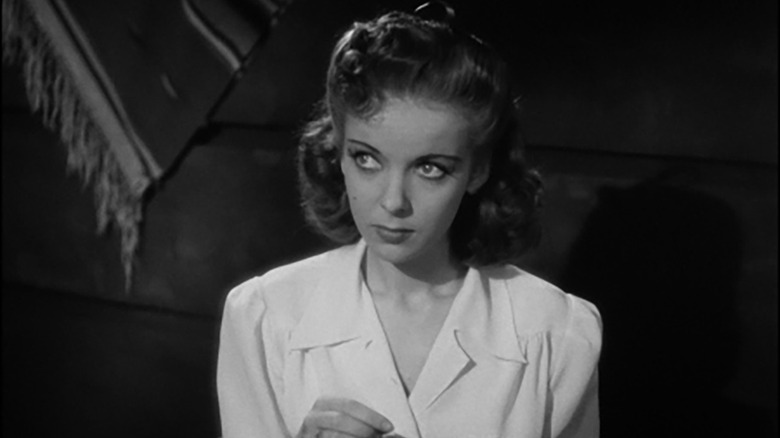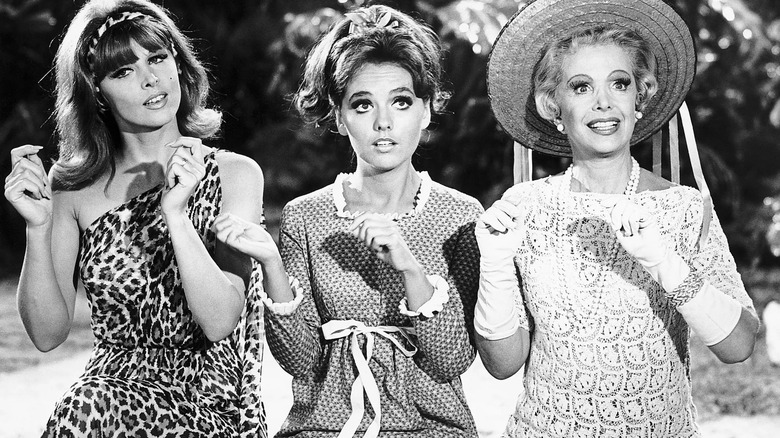This Classic Hollywood Multi-Hyphenate Set Her Sights On Gilligan's Island
Sci-fi legend Jack Arnold ("It Came from Outer Space," "Creature from the Black Lagoon," "The Incredible Shrinking Man") directed a majority of "Gilligan's Island," with plenty of prolific names like John Rich ("All in the Family," "The Dick Van Dyke Show"), Leslie Goodwins ("Young Dynamite," "The Mummy's Curse," "Dragnet"), and even "Superman" director Richard Donner (who also directed "The Omen," "The Goonies," and "Lethal Weapon," among many others) all steering multiple episodes.
The origin of "Gilligan's Island" is a fascinating story already, with creator Sherwood Schwartz allegedly singing the theme song to a gas station attendant to see if the show sounded like something the average person would watch, but just as interesting is how groundbreaking the show was behind the camera.
Namely, by inviting decorated actress and history-making director Ida Lupino to helm a few episodes.
Although Rod Amateau is credited as directing the pilot for the series, CBS comedy show supervisor Sol Saks was quoted as claiming in William Donati's "Ida Lupino: A Biography," that Lupino had been brought in to help shape a struggling show. "It was 'Gilligan's Island,'" Saks said. "It wasn't even on the air yet. I asked Ida to come down and direct the pilot. It wasn't her kind of show, but she came as a favor to me." Lupino was known as "The English Jean Harlow" in terms of her acting career, but when she became the first woman to direct a film noir with "The Hitch-Hiker," her presence was a sign that a project was a big deal.
"She revived that show," recalled Saks. "She made them think, 'If Ida Lupino is here, we must be something.' Ida's appearance had a lot to do with that show going on and becoming a success."
The undeniable impact of Ida Lupino
Ida Lupino got her start as an actress, but throughout her nearly half-century-long career, she would add writer, director, and producer credits to her name. She starred in 59 films as a performer, but directed eight features, six TV movies, and episodes of nine different television series, including "The Twilight Zone," "Bewitched," and "Mr. Adams and Eve," the latter of which she also starred in as the female lead for 66 episodes. While working as an actress for Warner Bros. in the studio system, Lupino often found herself on suspension for making revisions to scripts or refusing to play characters she felt were undignified. She was essentially the OG "difficult to work with" actress, and the industry is better because of it.
In 1942, Lupino was asked to star in the film "Kings Row" with Ronald Reagan. She turned it down, which earned her yet another suspension. This gave her plenty of time to observe the production process from behind the camera, and it sparked her desire to direct. She and her then-husband Collier Young formed an independent film company called The Filmakers Inc., focusing on low-budget, socially conscious films. Although uncredited, her first feature directorial endeavor was co-directing "Not Wanted" in 1949 with Elmer Clifton, and the rest, as they say, is history. While Lois Weber was the first American woman to direct a feature film, Lupino would go on to become the most prominent within the studio system. "Gilligan's Island" would serve as her first foray into the American sitcom, and her episodes "Good Night Skipper," "Wrongway Feldman," and "The Producer" are all fantastic displays of her talent.
'Slumming, dear?'
According to "Ida Lupino: A Biography," Natalie Schafer, who played Lovey Howell, was less than thrilled with Lupino's presence on set. The director's third and final episode, "The Producer," was filmed after Lupino had directed "The Trouble with Angels," her final feature film and a popular comedy film starring Hayley Mills, June Harding, and Rosalind Russell about girls at a Catholic school run by nuns. When Lupino showed up on set, Schafer reportedly said, "Slumming, dear?" This was because back in the day, film and television were seen as two completely different worlds, a far cry from the prestige TV era of our current times.
Television was viewed as the "lesser" medium, and "The Producer" was still years removed from the groundbreaking mini-series "Roots" in 1977, when larger-scale productions became must-watch television. Perhaps Schafer was operating under the same brutal mindset that haunted the series' first season, but it begs one to wonder what she thought about herself as one of the show's stars if she viewed Lupino's directing as "slumming" it. Considering the longevity, popularity, influence, and pop culture permeation of "Gilligan's Island," whether or not the TV series was a "lesser" art form has been deemed irrelevant.
The hit sitcom pulled from some of the best of the best, and that includes director Ida Lupino.


